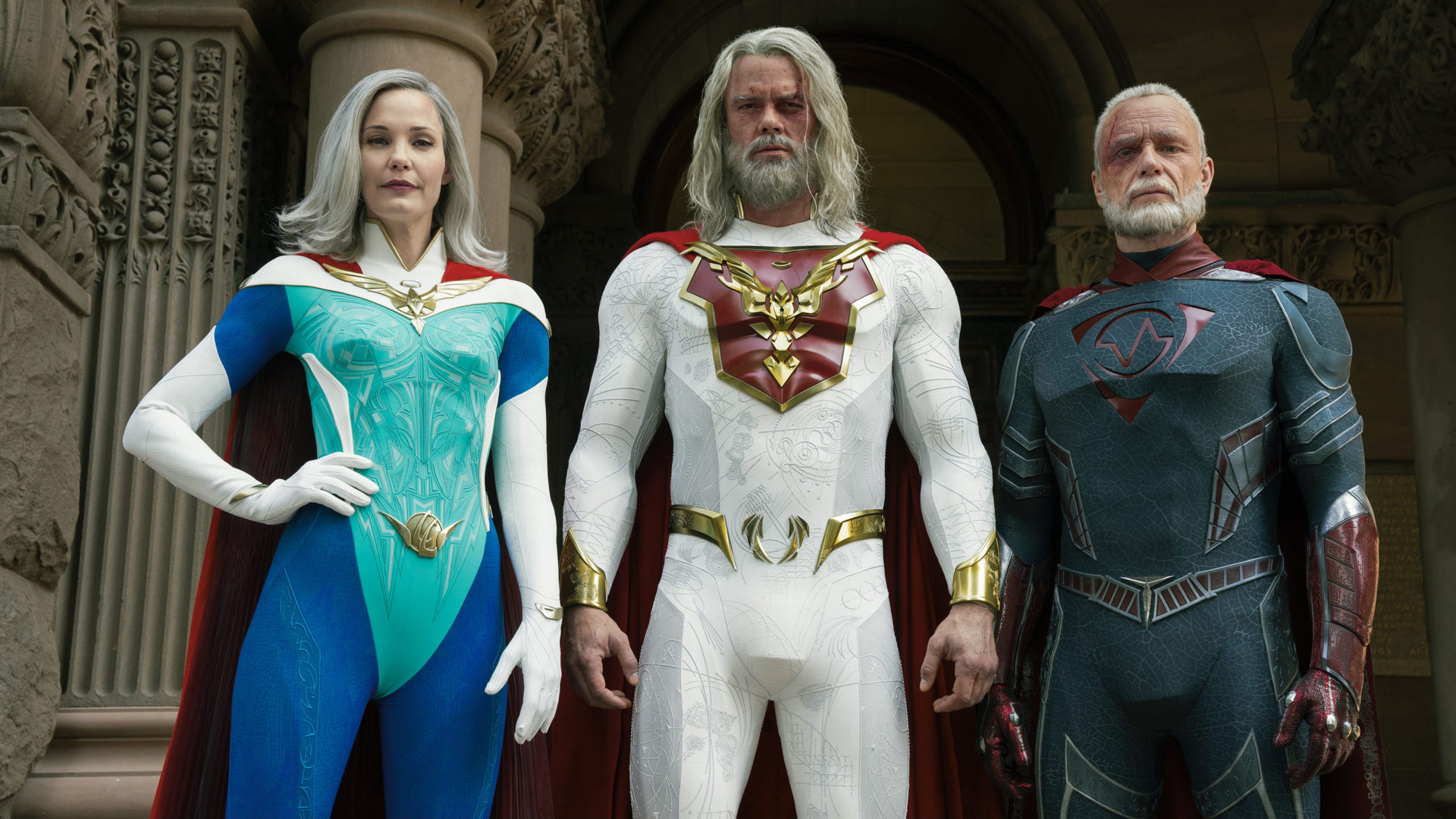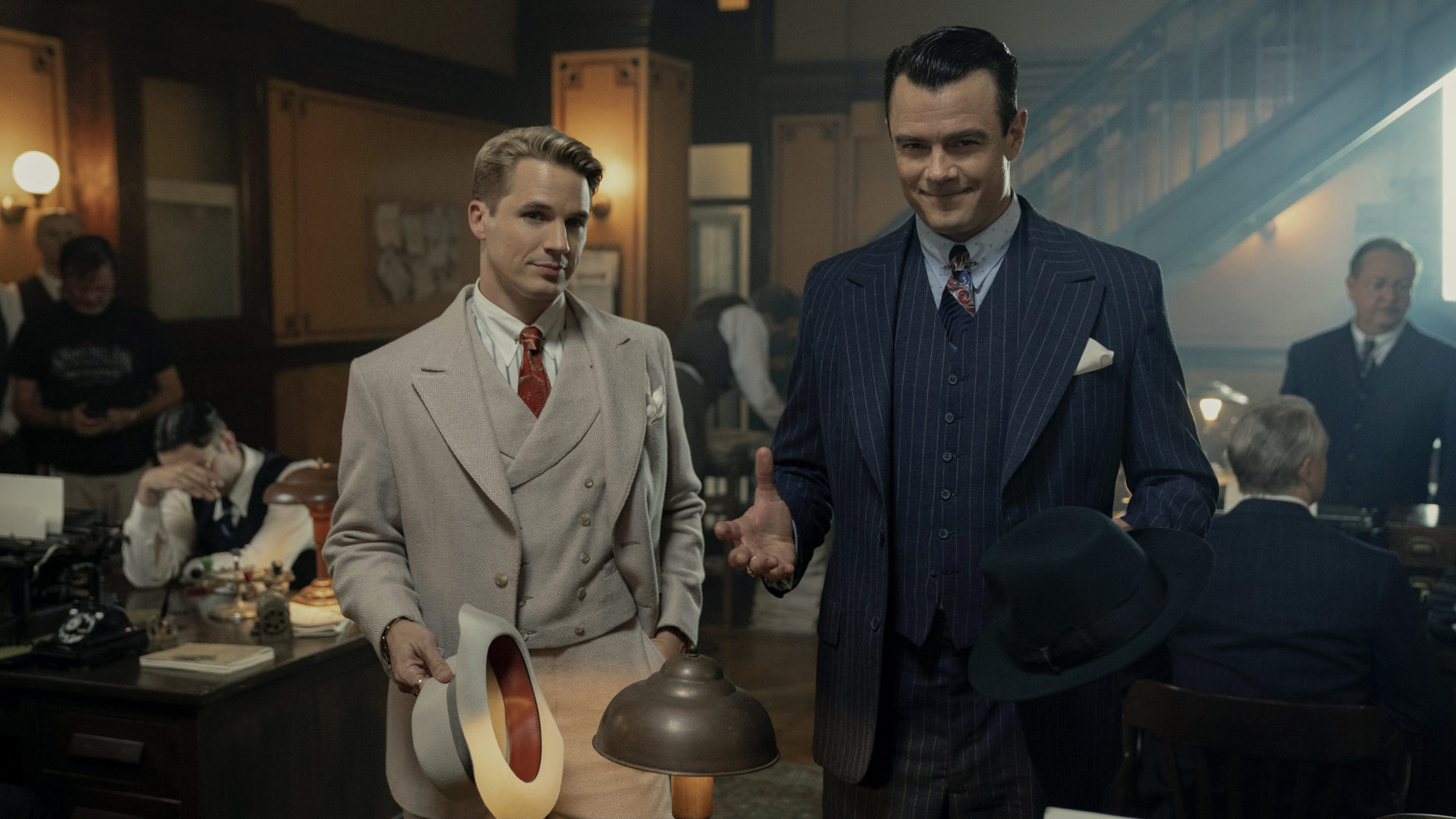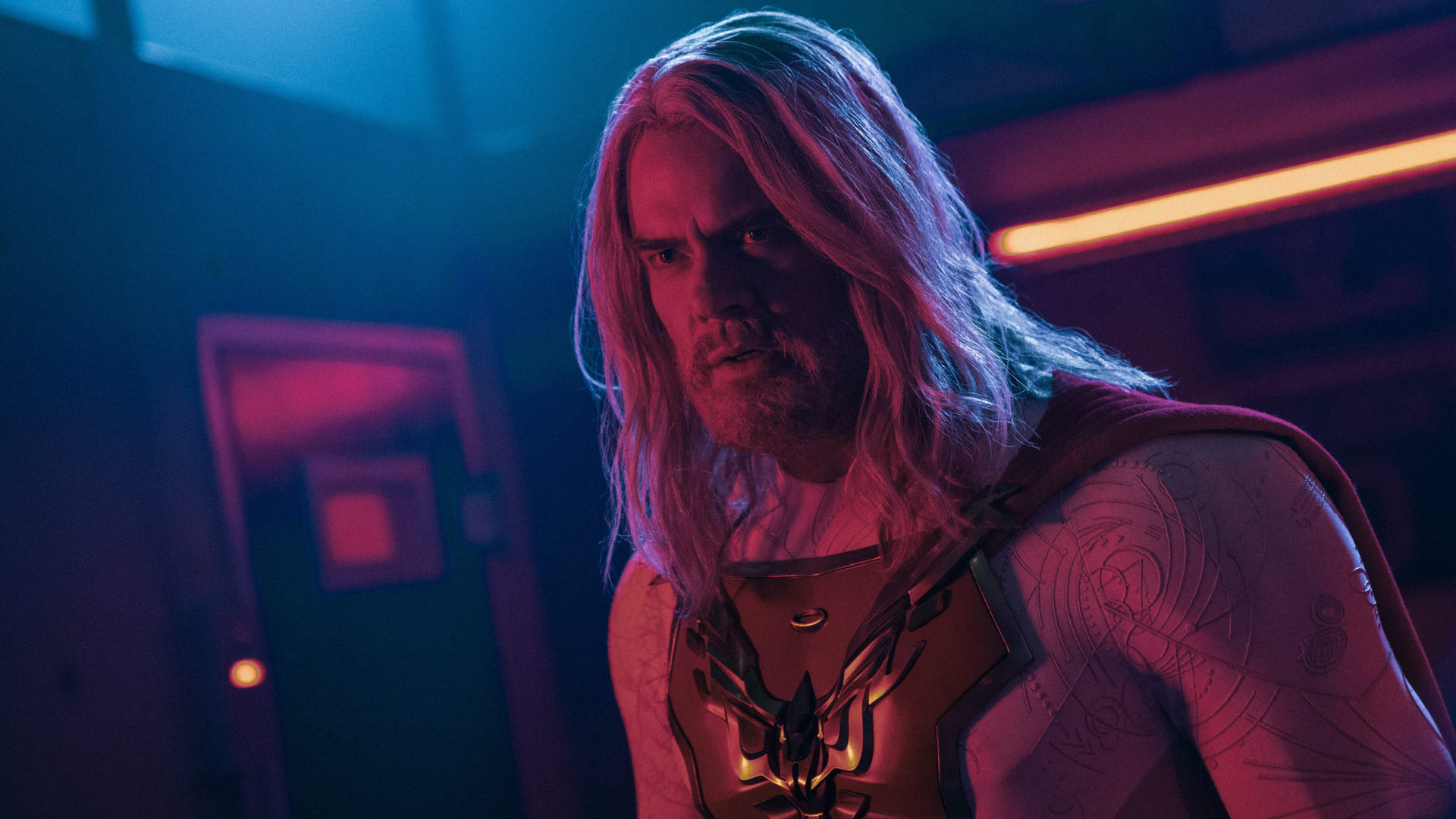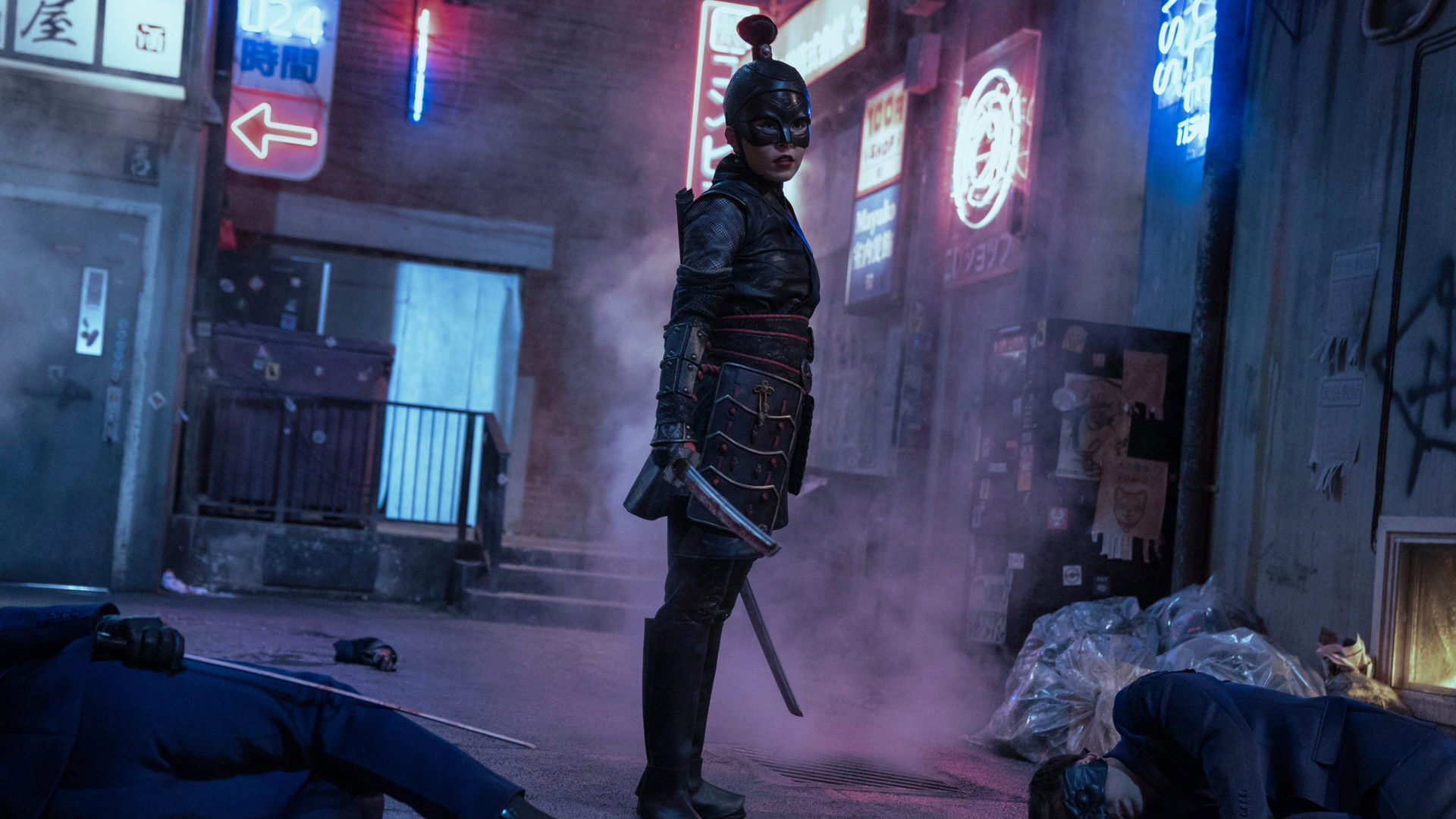Affiliate links on Android Authority may earn us a commission. Learn more.
Jupiter's Legacy: Netflix puts a fresh face on gritty superheroes
May 7, 2021

With Jupiter’s Legacy, Netflix continues to expand its role in the superhero arena. Now that its partnership with Marvel on shows like Daredevil, Jessica Jones, The Punisher, and more is over, the mega streamer has been building up its catalog with titles like The Umbrella Academy, She-Ra, Warrior Nun — now Jupiter’s Legacy.
Netflix seems to have its own in-house version of every buzzy genre under the sun. Ozark, Shadow and Bone, The Crown, BoJack Horseman, and other Netflix original series tend to tap into the zeitgeist. Jupiter’s Legacy is, in turn, pretty firmly in the same wheelhouse as HBO’s Watchmen and Amazon’s The Boys.
But luckily, it offers a fresh spin on the well-worn dark and gritty revisionist superhero genre. It stands on its own as a worthy entry in the increasingly crowded space.
What is Jupiter’s Legacy all about?
Based on the Image Comics series by Mark Millar and Frank Quietly, Jupiter’s Legacy imagines a world with its own celebrity class of superheroes. As the first generation of heroes begins to age out of the business, they look to their children to take up their mantles. For over 100 years, a “Union” of superheroes has fought for justice, under the guidance and strict moral code of Sheldon Sampson, AKA the Utopian.
The story alternates between timelines, revealing the origins of today’s elder heroes. During the Great Depression, as the family business goes under, Sampson embarks on a journey of self-discovery. Led by mysterious visions, he seeks out the forces that will eventually empower earth’s original six superheroes. In the present day, he looks to keep his super-family together and secure his legacy as the world around him changes. Meanwhile, young heroes, including his kids, seek to forge their own paths.
Truth, justice, and the American dream

There’s a lot to like in Jupiter’s Legacy.
Josh Duhamel anchors a strong cast as the Utopian in Jupiter’s Legacy. He lends the character a degree of depth that helps carry the show. If you’re used to his one-note macho army guy from the Transformers franchise, you’ll get to see what he can do with a little breathing room and smart material to work with.
Leslie Bibb, Ben Daniels, and Matt Lanter join Duhamel as fellow pioneer heroes, more than carrying their weight. Among the younger generation, Elena Kampouris, Andrew Horton, Ian Quinlan, and YouTuber Anna Akana put compelling faces on the Millennial/Gen Z struggle of coming of age in a world defined by the last generation.
Passing the mantle
The timeline in Jupiter’s Legacy is one of its great strengths. While Watchmen also tackles different generations of heroes, Jupiter’s Legacy follows one core group. It adds a sense of continuity to the mix. I’ve always wondered how Superman, with his slow aging process, might react to changing social norms and politics. Jupiter’s Legacy goes there.
By giving us heroes who came up during the Great Depression, we see a hero code defined by a broken American Dream. It’s no coincidence that this version of the Avengers or Justice League calls itself the Union, reframing heroes as workers with rights and responsibilities. It’s a clever take, presenting heroes as laborers, championing collective action at its (hypothetical) best.
The need for new generations to define themselves blends well with those themes. One’s legacy can’t define everything that comes next. Times change and people — heroes, politicians, average Joes — need to change too. Can the Utopian’s code, which includes never taking a life, last when heroes begin to die in an increasingly hostile world? Is he out of touch? Has his mission failed? Does the world need to be fixed, or do heroes need to adapt?
Lighten up, will you?
The show also strikes a great balance in its tone. Despite covering some weighty topics around the politics of vigilantism, the individual responsibility that comes with great power (yes, there’s an explicit nod to Spider-Man in the very first episode) and the fallout of betrayal, Jupiter’s Legacy is surprisingly light and fun throughout.
Jupiter’s Legacy strikes a great balance in its tone, mixing weighty topics with escapist fun.
It doesn’t get too cynical or gritty to make its point. And that allows it to feel a bit more escapist than The Boys or Watchmen. Those shows hit some incredibly high points. They’re worth checking out, certainly. But I’m not averse to some lighter fare, especially in these difficult times.
Jupiter’s Legacy hits that sweet spot impressively well.
Stop me if you’ve heard this one before

It’s easy to get a little worn out by the superhero content mill. Jupiter’s Legacy has the disadvantage of entering a crowded space. The dark, gritty, revisionist hero story has been done, and then done again and again and again.
Self-awareness, again
HBO’s Watchmen may be the strongest example of the genre so far. The show weaves Alan Moore’s classic comic into a story that reimagines historical events and systemic racism in an America populated by superheroes and villains.
Jupiter’s Legacy follows this path, with its Great Depression storyline, and veers toward The Boys in its conception of a Union of heroes. Jupiter’s Legacy’s Union is the grassroots, worker-led version of The Boy’s Vought corporation, a cynically commercial take on your friendly neighbourhood caped heroes.
If you’re reaching your fill, then this might not be the show to win you back.
If this sounds like Jupiter’s Legacy is covering some familiar ground, well, it is. Even the big moral dilemmas feel like we’ve seen them handled in the early superhero outings of the 00s. And the patriarchal supremacy of the Utopian feels a little too taken for granted in a show that wants to unpack hero myths. If you’re reaching your fill of that kind of stuff, then this might not be the show to win you back.
A not-so-cinematic look and feel
Aesthetically, some of the action sequences also suffer from what we might call CW syndrome. (The CW’s “Arrowverse” DC superhero shows have wildly uneven production value, with some special effects looking downright cheap.) As the fighting heats up in Jupiter’s Legacy, a mix of fast cutting and slightly less than top-of-the-line CGI detract from some really compelling storytelling and acting. Combined with the artificial ageing makeup and wigs for the centenarian heroes, the look and feel falters. These moments can veer toward goofy and cartoonish.
You’ll already be suspending your disbelief anyway, so this isn’t a fatal flaw by any means. But it leads to some tonal blips that aren’t ideal. The gorgeous, haunting, and stripped-down effects and action sequences of Watchmen would have been welcome here.
Is Jupiter’s Legacy worth watching?

In short, yes.
Despite some shortcomings, Jupiter’s Legacy feels like a fresh new entry in the superhero genre. With an original backstory, solid performances, and enough twists and cliffhangers to keep you invested, I can only hope we’ll get a second season. Jupiter’s Legacy scratches the comic book itches that it’s aiming for. And it solidifies Netflix’s post-Marvel reputation as a serious player in the genre.
Jupiter’s Legacy drops globally on Netflix today, May 7.